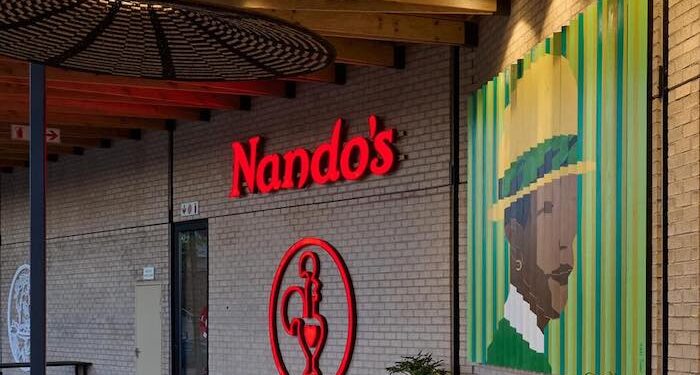The term “cultural relevance” is all the buzz, But is it really culturally relevant when a brand simply hops on the latest meme, references the current big sports moment, or issues a token nod to whatever’s trending?
This approach feels like the brand version of just dropping in for a quick photo, then leaving. It’s a lot like being a cultural tourist, but in a digital way. What’s missing is understanding why cultural relevance matters and how to make it last beyond a fleeting moment.
Actual cultural relevance starts with a connection to the fundamental truths and shifts driving how people live, think and behave. This is where a first principles approach matters. At its core, first principles thinking is about questioning assumptions. It means stripping away inherited logic and instead reasoning from the ground up.
Instead of chasing trends or viral moments, brands should ask some pertinent questions. This includes: What do our customers really need, struggle with, and hope for? How can our brand’s mission address those deeper concerns in a way that is authentic and valuable?
The critical change is switching from following trends to understanding what really matters to your customers – then figuring out how your brand can genuinely help them.
Brands need to start with a foundation so that staying culturally relevant becomes about showing up authentically when it matters. There needs to be less jumping on every trend. This approach takes more time and thought but is also more sustainable. Trends burn bright and fade fast, but the drivers behind them – a need for belonging, a desire for fairness, pride in identity, or joy in difficult times – tend to endure.
In South Africa, Nando’s has demonstrated how to do this with authenticity and consistency. Their campaigns have consistently tapped into the country’s political and social climate. Nando’s (and their agency) uses humour and satire to comment on everything from elections to load shedding.
Irreverent and bold
Over time, they’ve cultivated a brand voice that is irreverent and bold, and if we’re honest, whenever something culturally relevant happens, we all look out for what Nando’s will have to say. This brand’s personality is so well established that when Nando’s wades into a cultural moment, it feels like a continuation of an ongoing conversation rather than a marketing gimmick.
They have managed to build equity by showing up in ways that reflect and respect the lived experience of their audience. That’s what makes their cultural relevance both sharp in the moment and durable over time.
Nike is a good global example of this approach. While they are known as a big sports brand and will advertise as such, some of their most powerful campaigns touch on themes such as identity, never giving up, and fighting for what’s right.
An example of this is the Dream Crazy campaign featuring Colin Kaepernick (who famously took a knee during the national anthem to protest racial injustice). This campaign aligned the brand with the broader cultural movement around racial justice and athlete activism. Of course, this was not without risk. The campaign sparked boycotts alongside praise.
Confident cultural conversations
But because Nike’s long-standing brand narrative champions those who “just do it” in the face of adversity, the stance felt authentic. There is little doubt that the result was not only increased engagement, but also stronger loyalty among core audiences, and a renewed sense of cultural relevance.
Both Nando’s and Nike prove that when a brand’s core values and personality are clearly defined and consistent, it can confidently enter cultural conversations.
The business benefits here are real, too. Brands that truly connect with culture tend to be more trusted and people feel more attached to them. This, in turn, means that often people are willing to pay higher prices.
And in today’s world, where everyone can skip ads and tune out marketing, being relevant makes people want to listen to you. It also protects your brand: competitors can copy what you make, but they can’t easily steal the emotional space you own when it’s built on real connections with people.
Amplifying missteps in real time
On the other hand, when you get cultural relevance wrong, it can do more than waste marketing spend, and it can actively damage a brand. Token gestures, especially around sensitive topics, can backfire and erode trust. Consumers today are quick to spot insincerity, and social media amplifies those missteps in real time.
We live in an age where algorithms and AI can spot a trend before most humans do. This means that there’s the temptation to move faster and faster. But doing so without substance just accelerates the risk of irrelevance.
Building cultural relevance is about creating a feedback loop between brand and culture, where each informs and strengthens the other. That loop is the cumulative effect of many consistent, meaningful interactions over time. Over the long term, the brands that do this well earn a place in people’s lives.
For marketers, the challenge is to resist the pull of the quick hit and instead play for enduring influence. The reward is a brand that feels relevant not just today, but in the next season, the next year, and beyond.

Simon Spreckley is a renowned digital pioneer with over 20 years in creative leadership. Former Executive Creative Director at Hellocomputer, founder of Thoopid Games and Ritual Studio, and a pivotal figure in Hoorah Digitals transformation, Simon now leads FUTUREBORN. His work, recognised by major awards including Cannes Lions and Loeries, focuses on blending innovative technology with strategic creativity.













